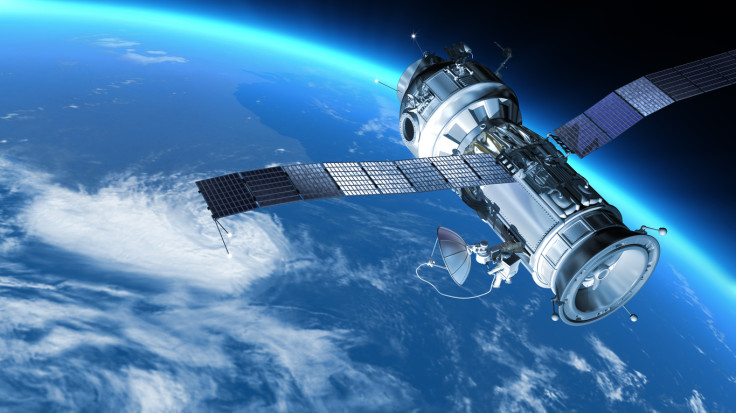Britain second only to United States as destination for space investment
A new report by PwC and the UK Space Agency sheds insight into the significance and growth of the global space sector. It shows Britain as the second most attractive economy for space investment.

Technological innovation has always been a key driver of economic and social change throughout modern history since the onset of the industrial revolution.
In recent news, impressive developments in artificial intelligence (AI) have captured public attention. For example, Human-level AI with "artificial general intelligence" (AGI) could be here soon, according to Google DeepMind CEO Demis Hassabis.
With the aim of keeping the economy competitive in today's increasingly competitive international global order, the British government are focused on tech. They have the stated objective of cementing Britain's status as a "global science and technology superpower" by 2030.
The British government have announced the intention to establish an "expert taskforce" to ensure that Britain is competitive in the global development of AI. It will also ensure that AI development is safe, acting as "a global standard bearer for AI safety".
However, also on the agenda is the space sector. A report produced by PwC in association with the UK Space Agency "shines a light on the breadth and depth of space investment opportunities" according to Craig Brown, Director of Investment at the UK Space Agency.
The space sector has increasing global significance, with a total global value of over $469 billion constituted mostly by the commercial market. The global space ecosystem is expected to undergo growth of up to 11 per cent annually until 2030. However, faster growth rates are forecast for "earth observation, satellite communications and connectivity" according to the executive summary of the report.
Approximately 5000 active satellites drive the international economic contribution of space. However, by 2030 a dramatic increase is expected with an "estimated 100,000 satellites" potentially operational. Moreover, the global economy is only going to become more dependent on satellites and space systems.
Taking into account "government, non-commercial (universities and research institutes) and commercial organisations", it is estimated that the space industry supports £370 billion (~18%) of British GDP per year. Therefore, the space sector is a critical element of the British economy. However, the British economy is also significant in the global space sector.
The report by PwC and the UK Space Agency highlights how Britain has been a leading destination for space investment. Since 2015, private capital investment into the space sector amounts to over $47 billion globally, with average annual growth of 21 per cent. Britain has received 17 per cent of this investment, second only to the US.
Notably, Britain is home to the HQ of Seraphim Capital, a "leading space fund". Their mission is to "identify, support and grow early-stage SpaceTech companies across the full life cycle, from inception to exit". TypeOne VC, a US space and deep tech fund, also have offices in Britain. TypeOne VC boldly envisions "a future civilization that is not only self-sufficient but also interplanetary". Moreover, Britain's economy is enticing for venture capital firms.
Britain's National space strategy and space security
Back in 2021, the British government published the "National space strategy" policy paper. The paper articulated the objective of building "one of the most innovative and attractive space economies in the world".
In 2022, the Ministry of Defence published its "Defence Space Strategy", which set out the intention to invest £1.4 billion in Britain's "defence space technologies" over a 10-year period.
Alongside innovation in domains such as "AI, quantum computing, engineering biology, and nuclear technology", innovation in space tech is considered of great importance by the government for "future prosperity and quality of life" in Britain, and also "as an increasingly important arena of competition between states".
The importance of science and technology in these areas was highlighted in the 2021 Integrated Review (IR2021), a paper which highlights the government's ambitions for Britain's role in the world.
However, as the space sector becomes more integrated into the economy and our day-to-day lives, space security is a big concern.
For example, the Integrated Review Refresh 2023 (an update to the IR2021 paper) mentions a "direct ascent anti-satellite (ASAT) missile test" by Russia in November 2021. According to the National Space Strategy, anti-satellite missiles are one of the ways through which Britain's "potential" rivals "are developing capabilities that will put our people, equipment and information networks at risk".
In an effort to promote responsible space activity within the international system, the British government committed to not testing "direct ascent anti-satellite (DA-ASAT) missiles" back in October 2022. Space debris can be caused through the use of anti-satellite missiles, which puts the functioning of space systems at risk. In the words of the Foreign, Commonwealth & Development Office and UK Space Agency, the testing of anti-satellite missiles "can be conclusively regarded as irresponsible".
© Copyright IBTimes 2025. All rights reserved.





















